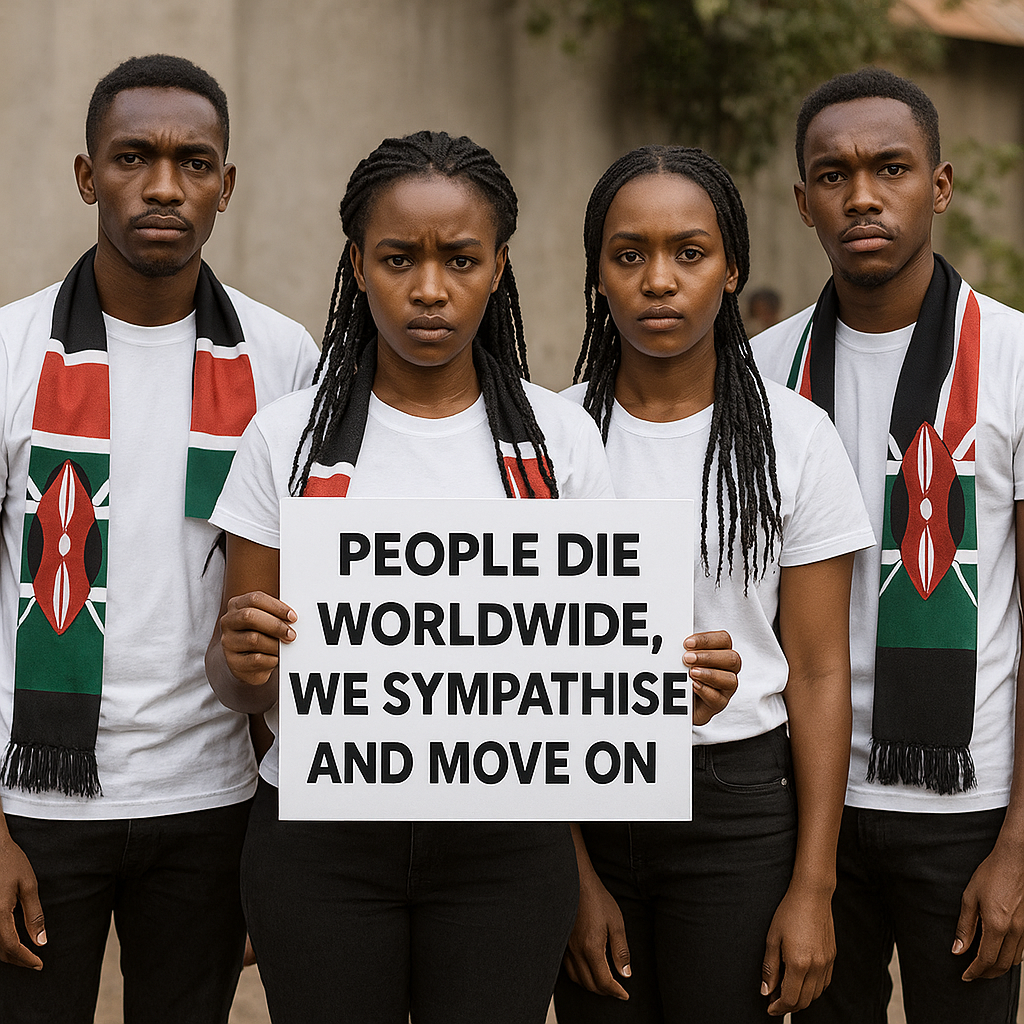
A new wave of public sentiment is sweeping across Kenya, as citizens—particularly the youth—react to the recent tragedies befalling politicians and their families not with sorrow, but with celebration. The shift comes in the aftermath of the controversial June 2025 protests against the Finance Bill 2024, which saw Members of Parliament vote yes despite overwhelming public rejection.
Since then, the relationship between Kenyans and their leaders has taken a drastic, emotionally charged turn.
“People Die Everywhere”
The tension escalated when a sitting Member of Parliament, addressing the deaths of Gen Z protesters during the June demonstrations, dismissively remarked: “People die everywhere. We sympathise and move on.”
That statement, now deeply etched into the collective memory of the public, has become a cold slogan used by citizens whenever a politician or one of their relatives dies. It is no longer seen as a dismissal—it is seen as karma.
In recent weeks, several high-profile figures and families in political circles have faced tragedies. The country witnessed the death of Senate Speaker Amason Kingi’s father, the passing of former MP Malulu Injendi, and most recently, the shocking killing of Member of Parliament Ong’ondo Were, who was gunned down by motorist assailants along Ngong Road.
Rather than sympathy, social media exploded with comments echoing the MP’s infamous phrase: “People die every day, let’s sympathise and move on.”
“If Life Is Hard in Kenya, Leave”
Another flashpoint of anger was a statement by the Woman Representative of Dagoretti South, who during the height of protests told suffering Kenyans: “Kama maisha ni ngumu Kenya, si uhame?” (If life is hard in Kenya, why not leave?)
Her comment, widely viewed as dismissive of the struggles of ordinary citizens, resurfaced again after the tragic loss of her son in a road accident. This time, Kenyans responded by throwing her own words back at her. Across social platforms, posts repeated her phrase not out of spite, but as a reflection of how disconnected and insensitive many perceive their leaders to be.
Not Hatred—Betrayal
What might seem to outsiders as cruelty or insensitivity is, in the eyes of many Kenyans, a form of justice—or at least poetic irony. Years of corruption, blatant arrogance from political figures, the killing and abduction of young protesters, and a government that appeared deaf to its people’s cries have culminated in a public that no longer mourns for its leaders.
“It’s not that we celebrate death,” said one Nairobi youth. “We celebrate justice. We’re tired of crying alone while they mock our pain.”
Others point to the Finance Bill 2024 as the final straw. Despite massive public opposition, MPs voted overwhelmingly in favor of a bill many saw as punishing the poor while shielding the elite. When Kenyans protested, they were met with violence—and in many cases, silence from their elected leaders.
A Nation at a Crossroads
Kenya now stands at a moral and political crossroads. The current tone of the nation is not driven by hatred, but by grief, betrayal, and a desperate yearning for change.
As more Kenyans speak out, one thing is clear: the public no longer fears the political class. If anything, the political class is beginning to fear the public. Whether justice comes from the courts or what many now call “divine intervention,” the message from the streets is loud and clear—Kenya is awake.